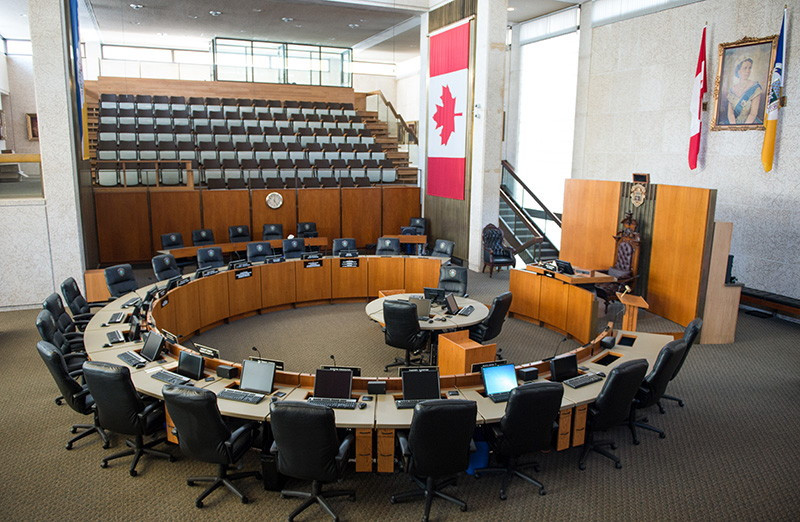Elect a new mayor and executive policy committee
How could Winnipeg be improved? The Uniter put together a list of ideas… To view the next article click here.
It was a moment I’ll never forget.
Shortly after the 2010 Winnipeg civic election, The Uniter published a few light-hearted interviews gauging the reaction of regular citizens on the street.
As I opened the paper, I was awestruck by one woman’s brief but steadfast reaction to the results.
“I am profoundly disappointed that there wasn’t a shift in the mayor,” she said. “And disappointed I’m still represented by Harry Lazarenko.”
The kicker: Harry Lazarenko, who had served as city councillor for the Mynarski ward since 1983, did not even run in the election because of a brain aneurysm.
This woman obviously did not vote, or follow election coverage - Lazarenko’s name was not on the ballot and the race to succeed him was one of the few interesting stories of the campaign.
But, more importantly, she simply assumed that the incumbent had won, regardless of whether she hadn’t seen him or heard his name mentioned for nearly two months.
Although the woman’s statement (and the fact the interviewer didn’t correct her mistake) gave me a good chuckle, I’ve come to realize this gaffe explains virtually all you need to know about the history of electoral politics in Winnipeg.
Throughout its history, this city has never voted out an incumbent mayor and rarely (if ever) are incumbent councillors defeated. In the 2010 election, despite stiff competition in a number of wards, every single incumbent was re-elected.
It was in the spirit of this electoral negligence and apathy that mayor Sam Katz, in response to recent queries about his 2014 re-election plans, posed this fateful question:
“Can you think of a reason I should not run?”
He posed this to a scrum of local media after his ninth State of the City speech, which was short on ideas and long on asinine boosterism. The reporters, who have tracked over a year’s worth of debilitating scandals originating largely out of the mayor’s office, were momentarily stunned.
Given history and the frequently oblivious disposition of Winnipeg’s electorate, they need not have been. But the mayor doubtless knows a plethora of reasons why he should not run for re-election, not least of which is the fact that history may be poised to change.
One of the most reported but least understood aspects of the City of Winnipeg’s 2013 operating budget was its $40,000 increase in the discretionary office funds for city councillors. The increase was widely decried as government greed and profligacy; shameful at a time when property taxes were set to increase by 3.87 per cent.
However, the ward allowance increase demonstrated something more than just political greed; it showed a nervousness among incumbent councillors turning the corner into an election year.
They justified the money in order to “attract and retain staff” and “maintain communication with ward residents,” according to the Winnipeg Free Press.
Couple this with a new squad of policy advisers to the mayor and executive policy committee (EPC) at a cost of $722,000 - which will bolster executive credibility and coherence - and you have a pre-election budget meant to get nervous incumbents, particularly those in EPC who drafted the budget, re-elected.
And many of them, particularly the mayor, have reason to be nervous.
Sam Katz first won in a close 2004 byelection and, because of his brief tenure, had little problem winning re-election in 2006. The 2010 election, against a popular career politician with some policy pedigree, required a narrative.
The defining narrative crafted by the mayor was municipal independence versus a Manitoba NDP-controlled council majority with Judy Wasylycia-Leis at the helm.
Ultimately, Katz sold the electorate on this paradigm and, as a result, the NDP will likely step away from municipal politics in 2014.
And there’s the rub.
Absent a narrative to demonize his opponent, and with a shoddy record to his name, Sam Katz will be hard pressed to beat a smart (dare I say young?) challenger with bold ideas to improve Winnipeg. Some incumbent councillors may be at a similar disadvantage.
Many were disappointed when the cantankerous 74-year-old Harvey Smith was handed another four years representing Daniel McIntyre despite tough and intelligent competition from two young policy wonks. But the old guy was elected by just over 100 votes and much of the young progressive vote was split between the runners-up.
After nearly a decade with Katz and company at the helm, there may be more critical electoral mass than even $40,000 can mitigate.
Part of the series: The Urban Issue 2013
Published in Volume 67, Number 25 of The Uniter (March 28, 2013)








